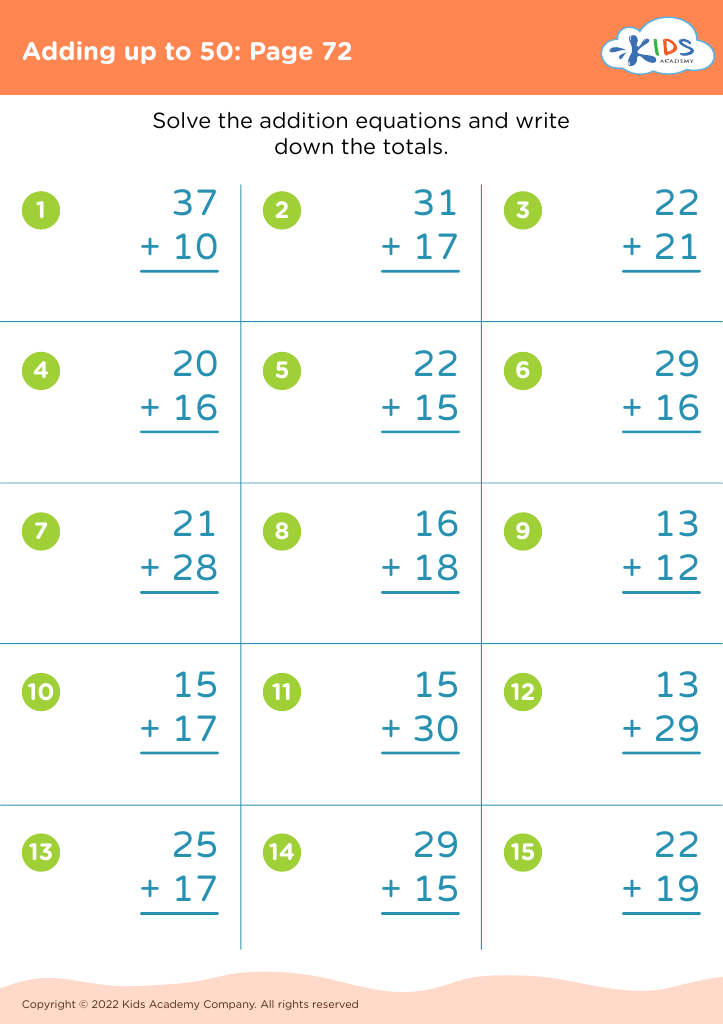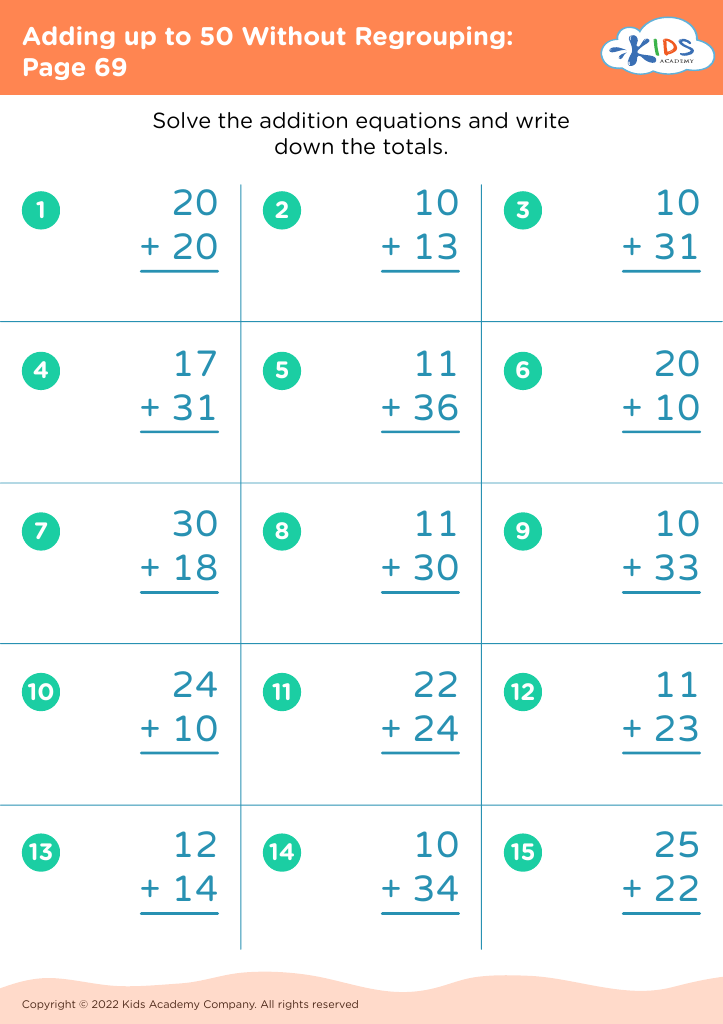Understanding multiplication Adding up to 50 Worksheets for Ages 6-8
5 filtered results
-
From - To
Welcome to our "Understanding Multiplication Adding Up to 50" worksheets, designed specifically for children aged 6-8. These engaging activities aim to simplify the concept of multiplication through practical examples that relate to adding numbers up to 50. With colorful visuals and clear instructions, kids will develop a solid foundation in multiplication skills while boosting their confidence in math. Our worksheets foster critical thinking and problem-solving abilities, making learning enjoyable and effective. Whether in the classroom or at home, these resources provide an excellent way for young learners to grasp multiplication concepts and enhance their overall arithmetic skills. Start your math journey today!
Understanding multiplication and addition is fundamental for children aged 6-8, as these skills lay the groundwork for future mathematical concepts and problem-solving abilities. For parents and teachers, fostering a strong grasp of these operations enhances a child's cognitive development and builds confidence in their mathematical abilities.
First, multiplication is often viewed as an extension of addition, making it crucial to ensure that children are comfortable with adding numbers up to 50. This foundational knowledge helps them recognize patterns, develop logical thinking, and approach math concepts more easily as they progress through school. An early understanding of these operations cultivates an appreciation for mathematics, making it less intimidating and more engaging.
Moreover, multiplication and addition play an integral role in various real-life situations, such as solving word problems, budgeting, and planning. By successfully mastering these skills early on, children become better equipped to tackle more complex mathematical concepts in the future.
Finally, students who achieve competence in these areas tend to perform better academically, fostering a positive attitude towards learning. For parents and teachers, prioritizing multiplication and addition extends beyond academics; it nurtures critical life skills that contribute to a child's overall success and self-esteem.


















